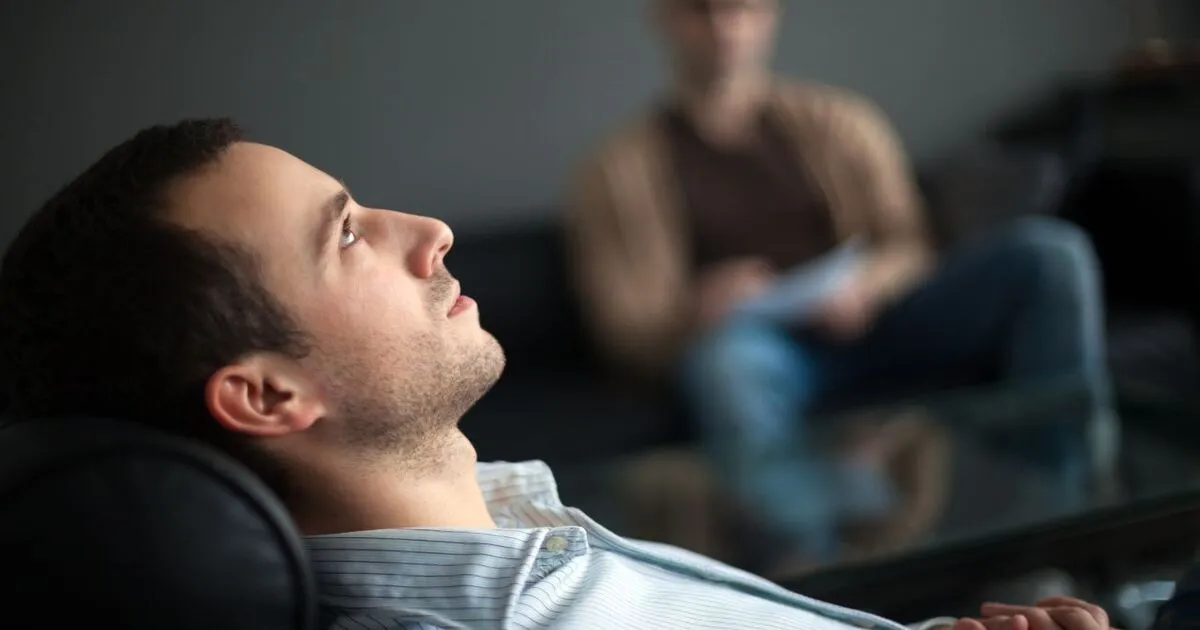Is Mindfulness-Based Cognitive Therapy Right For You? (MBCT) in 2024?

Often, we find ourselves living in loops with our thoughts, oscillating between past regrets and future anxieties. It’s like having a radio in your head that won’t turn off, right?
That’s where Mindfulness-Based Cognitive Therapy (MBCT) steps in—a bridge between age-old meditation practices and modern cognitive therapy techniques.
It’s not just about being present; it’s about understanding the “why” behind your mental patterns. In my years of diving deep into human psychology and spiritual well-being, I’ve observed how MBCT is rapidly becoming an invaluable tool for navigating the complexities of the mind.
A few years back, I had a client named Sarah, grappling with recurrent depression. Traditional Cognitive Behavioral Techniques offered her only a reprieve.
It wasn’t until we integrated mindfulness strategies that Sarah began to experience a more sustained emotional equilibrium. The transformative power of MBCT isn’t just theoretical; it’s a lived reality for many.
“The mind is everything. What you think, you become.” This profound statement from Buddha encapsulates the essence of MBCT. It’s not merely a treatment modality; it’s an invitation to a new way of being.
Subscribe to Create Higher Vibrations!
Get Inspiration and Practical advice straight to your inbox.
The Roots of MBCT
The inception of MBCT is itself a testament to the fusion of the East and the West. Psychologists Zindel Segal, Mark Williams, and John Teasdale recognized that while Cognitive Behavioral Therapy (CBT) was effective, it lacked an element that could prevent relapse in cases of depression.
They incorporated mindfulness, a concept deeply rooted in Eastern philosophy, to address this gap.
CBT equips you with the skills to challenge negative thoughts, but how do you stop these thoughts from surfacing in the first place? Meditation, especially mindfulness meditation, offers an answer.
When you’re in a state of mindfulness, you’re not just aware of your thoughts; you’re also less likely to become entangled in them.
The amalgamation of CBT and mindfulness is like having a Swiss Army knife for your mental health concerns—versatile and immensely practical.

Techniques in Mindfulness-Based Cognitive Therapy
In a world saturated with information and distractions, the quest for mental tranquility can often feel like searching for a needle in a haystack. But what if you had a compass? This is where Mindfulness-Based Cognitive Therapy (MBCT) comes into play.
The Philosophy of Mindfulness
You see, mindfulness is not just a buzzword; it’s a transformative practice that serves as the linchpin of MBCT. It elevates the therapy from merely treating symptoms to enhancing one’s overall quality of life.
Mindfulness is the art of conscious presence, a skill I consider indispensable in my practice. It takes you beyond just ‘living in the moment’—it’s about understanding the ‘now’ so intimately that the external chaos becomes almost irrelevant.
John’s Transformation: Take John, for instance, a client who grappled with anxiety disorders. His life was a reflection of ‘what-ifs’ until we integrated mindfulness into his CBT treatment. This shift made him aware of his automatic thought processes.
It was as if we had turned on a spotlight, illuminating the obscure corners where anxiety lurked. The mindfulness techniques reduced his distress, giving him what he described as a “secret key” to his mental lock.
Mindfulness Techniques in MBCT:
Interactive Question
So, have you tried integrating mindfulness into your daily life? If not, what’s stopping you from unlocking this untapped potential within you?
The Framework of MBCT
Imagine walking into an MBCT session. The atmosphere is imbued with a sense of tranquility. This isn’t by accident; it’s by design. The therapy blends the calming aura of mindfulness with the pragmatic aspects of cognitive therapy.
A Glimpse Into an MBCT Session:
It’s a synergistic dance of two worlds: the ‘being mode,’ focused on presence, and the ‘doing mode,’ concentrated on action. The interplay between the two culminates in a balanced mental state, making MBCT a unique treatment modality.
These methods and the underlying philosophy of mindfulness make MBCT a compelling path for anyone seeking a holistic mental health solution.
The Fusion of Mind and Science
Often, I find eyebrows raised when I discuss the integration of mindfulness—a concept deeply rooted in spiritual traditions—with cognitive therapy, a rigorously scientific discipline.
If you’ve been skeptical, you’re not alone. However, the scientific foundation of MBCT is both robust and compelling. Allow me to elucidate.
Pivotal Research Findings
Isn’t it fascinating how something as ethereal as mindfulness can have such tangible effects?
Voices from the Ground
Revisiting the Science
The science underpinning MBCT isn’t just anecdotal; it’s empirical. As mentioned in a systematic review and meta-analysis, the practice has been scrutinized and found effective in various research studies.
So, does this scientific backing challenge or confirm your previous assumptions about MBCT?
The intertwining of mindfulness and cognitive therapy isn’t just a novel concept; it’s a transformative phenomenon. MBCT serves as a testament to the power of blending spirituality with science, which not only grants us new avenues of treatment but also enriches the tapestry of human understanding.
Here’s a thought to ponder: If the essence of being human could be alleviated by being more ‘mindful,’ wouldn’t you want to explore that further?

The Real-World Effectiveness of CBT Mindfulness
The efficacy of Mindfulness-Based Cognitive Therapy (MBCT) is not just confined to academic journals and clinical trials; it’s validated in the lived experiences of real people. Let’s weave some data into the compelling stories we already have.
Redefining Reality: Emily’s Journey
Emily used to describe her life as “a perpetual state of anxiety.” This isn’t an isolated emotion; anxiety disorders affect millions globally. The transformative power of MBCT gave Emily what she describes as a “new lens to look at the world.”
Her experience isn’t an outlier. Research has shown that MBCT can significantly reduce symptoms of generalized anxiety disorder.
A meta-analysis demonstrated that MBCT reduced anxiety symptoms by an average of 47%. MBCT was found to be effective regardless of age, gender, or socio-economic status.
Breaking Stereotypes: David’s Enlightenment
David embodies many who approach MBCT with skepticism. “How could sitting quietly impact my depressive symptoms?” he questioned. Like David, many are pleasantly surprised by the outcome.
MBCT doesn’t merely provide temporary relief; it changes how you engage with your thoughts and feelings. David felt like he found a “reset button for his mind,” echoing the sentiments of numerous others who’ve benefited from this therapy.
A study published in The Lancet mirrored David’s experience, stating that MBCT is as effective as antidepressant medication in preventing depression recurrence.
On average, MBCT reduced the risk of relapse in recurrent depression by nearly 50%.
Beyond the Individual: A Collective Shift
Emily and David are not anomalies; they’re part of a growing number of people who have discovered MBCT as a revolutionary way to experience life. It’s not just about symptom management; it’s about a foundational shift in dealing with mental health concerns.
Research has extended the benefits of MBCT to reducing cravings for addictive substances.
Studies indicate that MBCT can also be safe and effective for those currently experiencing active depression.
These stories and statistics collectively paint a compelling picture. MBCT is not just another treatment option; it’s a transformative force in mental health care. So, with all this evidence and testimony, isn’t it time to ask yourself: What’s stopping you from rewriting your mental script?
The Spiritual Connection
Mindfulness-Based Cognitive Therapy (MBCT) and spirituality share an intriguing relationship, a sort of kinship if you will. You see, both realms aim to elevate our state of being beyond the mundane.
While MBCT offers a structured path, spirituality is often the compass guiding that journey. I’ve found that the practice of mindfulness is more than just a clinical tool; it’s an opportunity for existential enrichment.
Why settle for symptom alleviation when you can aim for soul elevation? MBCT allows you to step beyond the boundaries of clinical treatments and touch the ethereal aspects of existence. It’s akin to stepping out of a well-lit room into the open sky on a starry night. Suddenly, the cosmos makes sense, doesn’t it?
Is MBCT Right for You?
While the transformative potential of Mindfulness-Based Cognitive Therapy (MBCT) is compelling, it’s crucial to approach it with a tailored lens. Research on MBCT’s effectiveness for severe or active depression is a continuing journey.
Therefore, consulting your healthcare provider to assess if this treatment aligns with your mental health needs is indispensable.
The Work Beyond the Classroom
You see, MBCT isn’t just about what happens in a group setting. A significant part of this therapy unfolds in the flow of your everyday life. The “homework” extends beyond mere assignments; it’s about embedding mindfulness into your daily rituals.
Whether you’re brushing your teeth, savoring a meal, or simply breathing, the focus is on practicing CBT mindfulness skills. Here are a few key principles to guide you:
Moreover, while the framework of the classes is integral to the treatment’s success, the availability of trained MBCT therapists could be limited depending on your location.
Your MBCT Journey: A Practical Guide to Getting Started
Embarking on an MBCT program is akin to a concentrated 8-week course in mindfulness and cognitive therapy. Each week involves a two-hour session, punctuated by a full-day class after the fifth week. But how do you find the right program or therapist?
Finding the Right Guidance
The global landscape of MBCT educators isn’t uniformly organized, which means there’s no single directory to pinpoint a therapist near you.
So, where do you start? A conversation with your healthcare provider can be the first step toward finding an MBCT program. Alternatively, online directories dedicated to therapists could also offer leads.
The Rise of Hybrid Approaches
It’s worth noting that the growing recognition of mindfulness in mental health has led many professionals to incorporate the elements of cognitive embodiment of both CBT and mindfulness—even if they aren’t specifically trained in MBCT.
Therefore, if you’re intrigued by the prospect of transforming your life through mindfulness and cognitive therapy, numerous avenues are available for you to explore.
Final Takeaway
As we navigate the labyrinth of life, it’s easy to become entangled in mental webs of our own making. MBCT emerges as a lighthouse, illuminating a path to not just mental stability but spiritual fulfillment.
In my years of practice, I’ve observed that MBCT is not just a therapeutic regimen; it’s a lifestyle transformation. It integrates the wisdom of mindfulness with the practicality of cognitive behavioral techniques to create a holistic roadmap for well-being.
You see, it’s not just about surviving the storm; it’s about learning how to dance in the rain. Mindfulness teaches you to embrace not just the sunshine but the shadows as well.
The blend of mindfulness and cognitive therapy extends beyond the confines of any therapy room; it spills into every facet of your life. From how you interact with loved ones to how you perceive yourself, MBCT offers a transformative lens through which to view the world.
So, here’s a question to ponder as you go about your day: If you had the tools to not just navigate but shape your mental landscape, would you still wander, or would you choose to cultivate your paradise?








